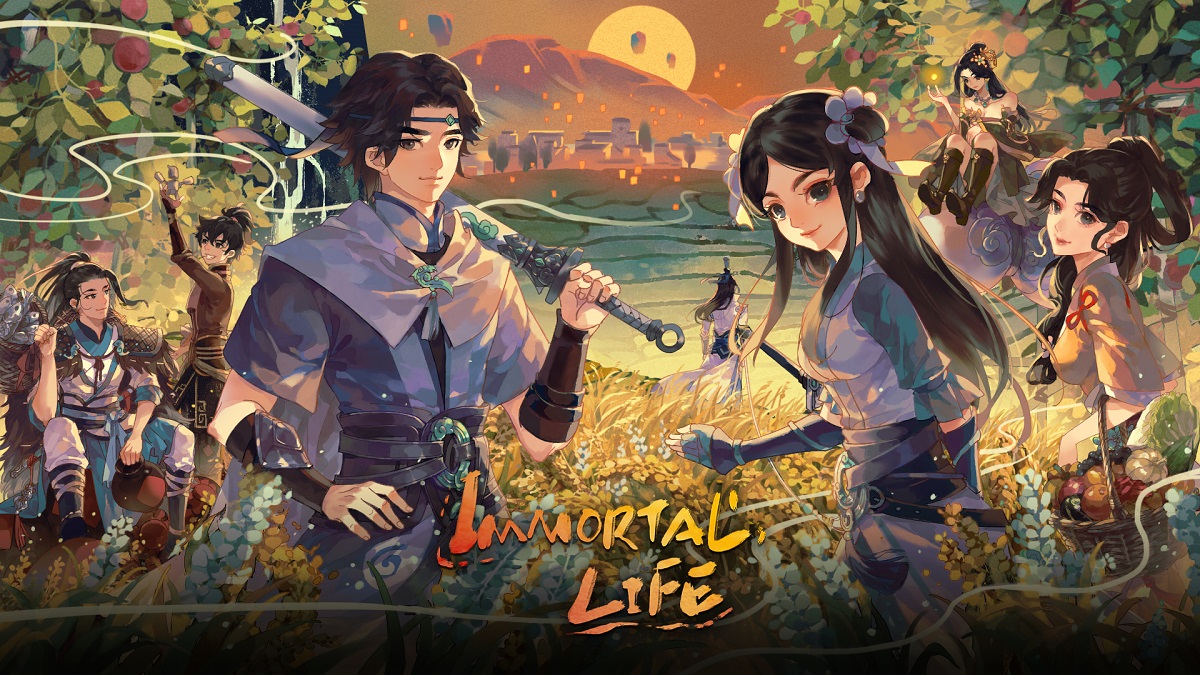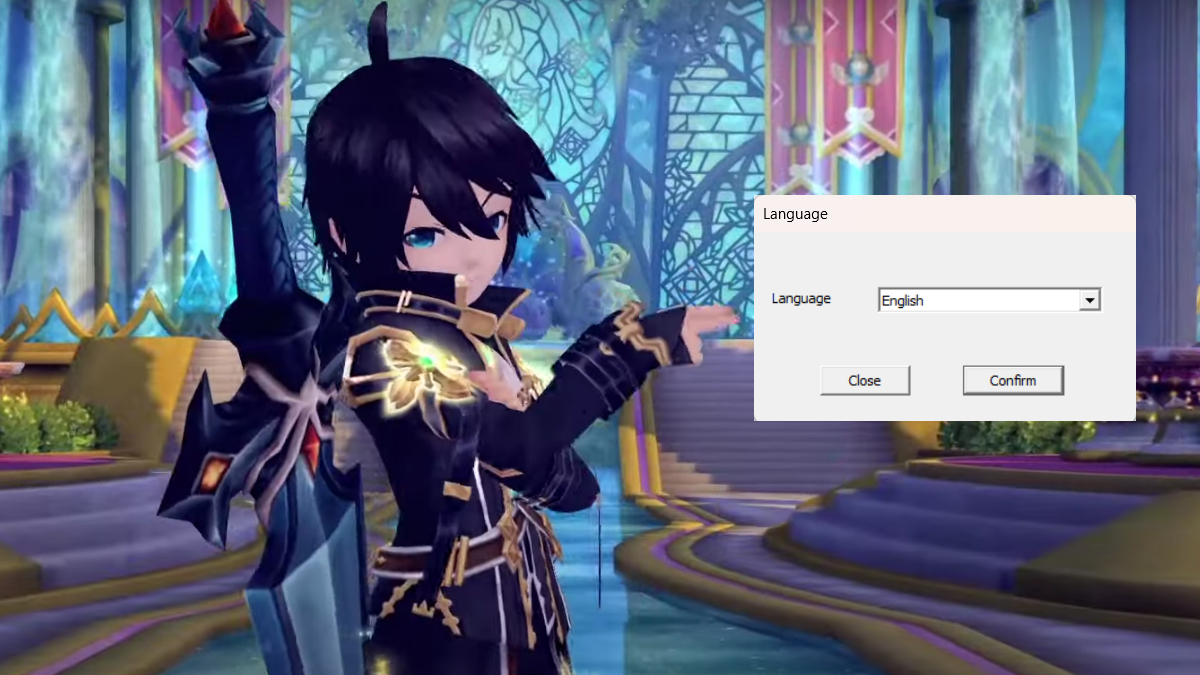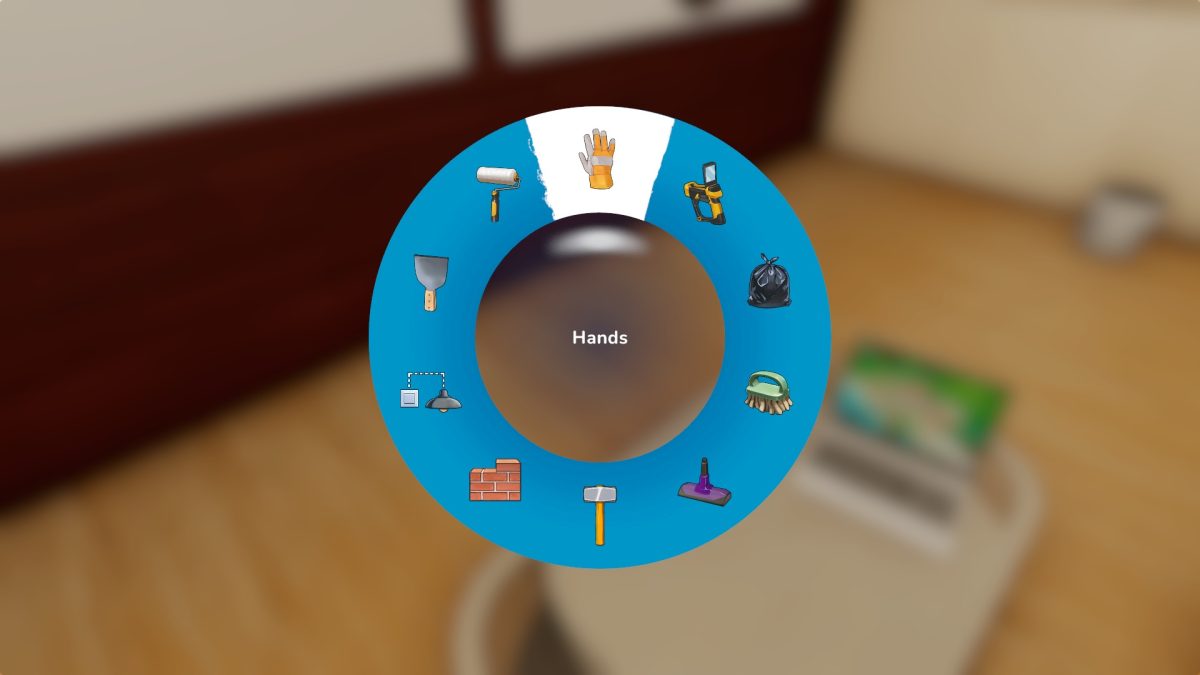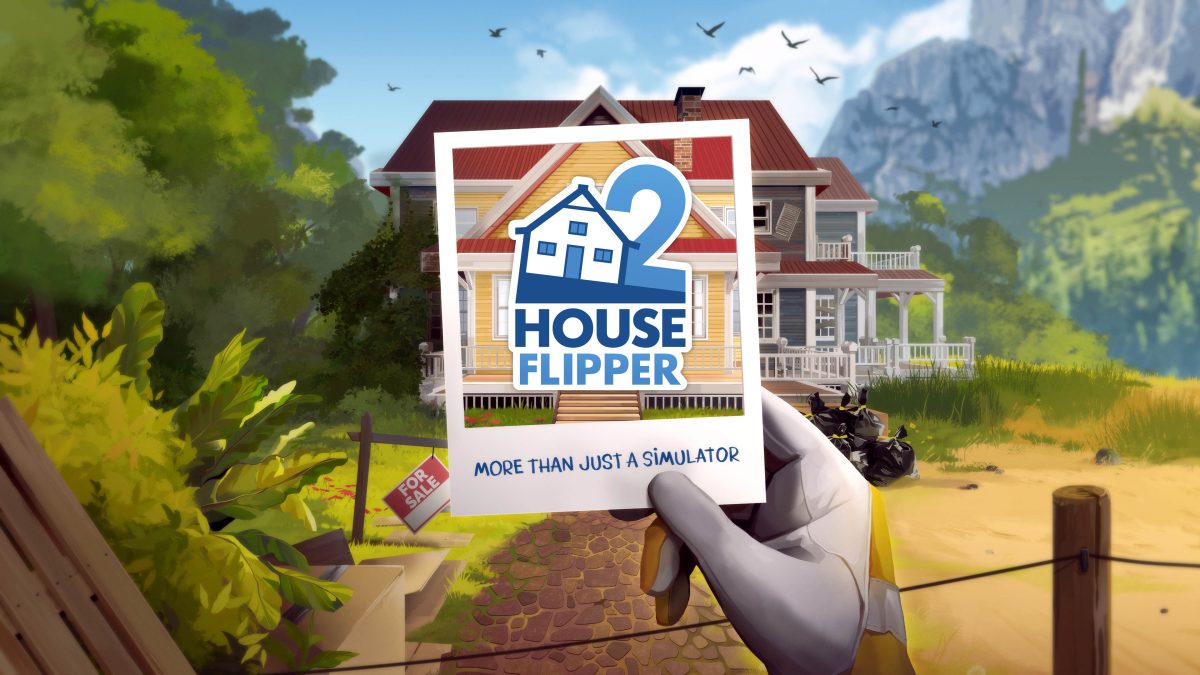Cafe simulators are a mainstay of the cozy gaming genre, allowing players to step into a fantasy world where disgruntled customers huff and walk away instead of screaming at you. Pixel Cafe by Baltoro Games is a tasty new addition to the genre, that is when it’s open for business.
Pixel Cafe is a drag-and-drop, time-management game/visual novel where you play as a young girl trying to make enough money to keep herself afloat and maintain the house she has inherited. At its heart, the storyline unfolding in this game is a coming-of-age tale as Pixel struggles to find her place in the world while jumping from dead-end job to dead-end job.
Key Details
- Developer – Baltoro Games
- Publisher – Baltoro Games
- Platforms – PC, Nintendo Switch, Xbox One, PlayStation 4
- Release Date – November 30, 2023
Another Day, Another Dollar…
The first surprise that Pixel Cafe has in store comes almost immediately after starting the game. The “Pixel” in the title does not refer to the game’s charming and nostalgic 16-bit art style but to its main character, a redheaded 20-year-old barista/cook named Pixel. She is something of a misanthrope, and most of the humor in the game’s storyline comes from her grumpy expressions as she delivers a salty monologue in her mind only to turn around and be perfectly pleasant to someone’s face.
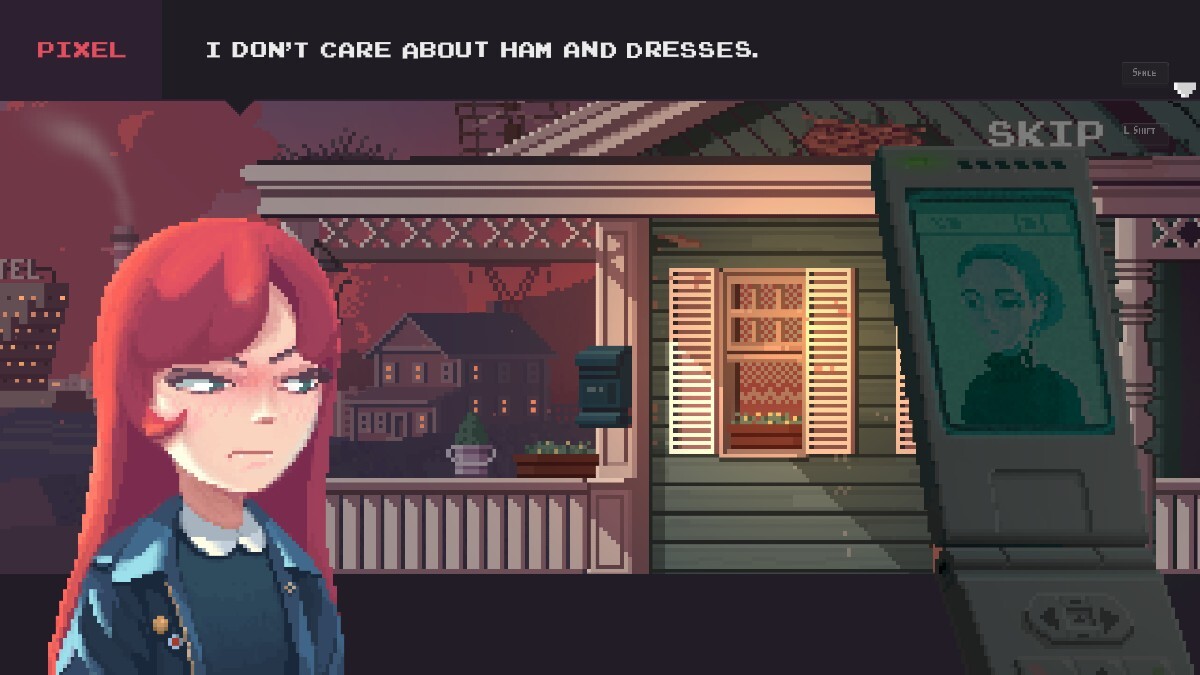
Pixel quickly finds that the old adage that “you can never go home again” sometimes rings true when she moves back to the house she once shared with her grandmother in order to gain some distance from her semi-estranged parents. She finds herself in Karstok, a 1980s-inspired island city, without a support system or reliable income stream.
The game progresses to different stages as she moves from job to job, changing both the backgrounds and the items you are expected to prepare for the thirsty public. The bosses at each location change, too. However, they do have one thing in common: they’re awful. At least some of them get their comeuppance, as shown in the newspaper headlines when entering a new job site.
Order Up!
The gameplay is repetitive but smooth, enjoyable, and oddly replayable. Once you get into the groove, you’ll find yourself really chasing the high of a perfect run. Each level is timed and lasts for about two minutes, which makes the levels perfectly bite-sized. While you can technically pause at any moment, if you take your eyes off the prize, for even the single second it takes to press the button, you risk sabotaging your entire round.
Every level has a set requirement as to the number of happy customers which must be served before time runs out. Some of their orders will be fast and simple. Others will be complicated and require multiple items, which take time to prepare. If you aren’t paying enough attention while swiping from counter to counter, drinks in drink machines can overflow and cooked meals can burn. If this happens, the item must be remade, which will cost you precious time.
If a food item is prepared incorrectly, the customer will not accept it, and it will have to be thrown in the trash, which will cost you both time and money. Each customer also has a patience meter, and if you don’t get them their order before it runs out, they will eventually leave. Customers must be served as quickly as possible in order to get enough new customers into your cafe to complete the level requirements.
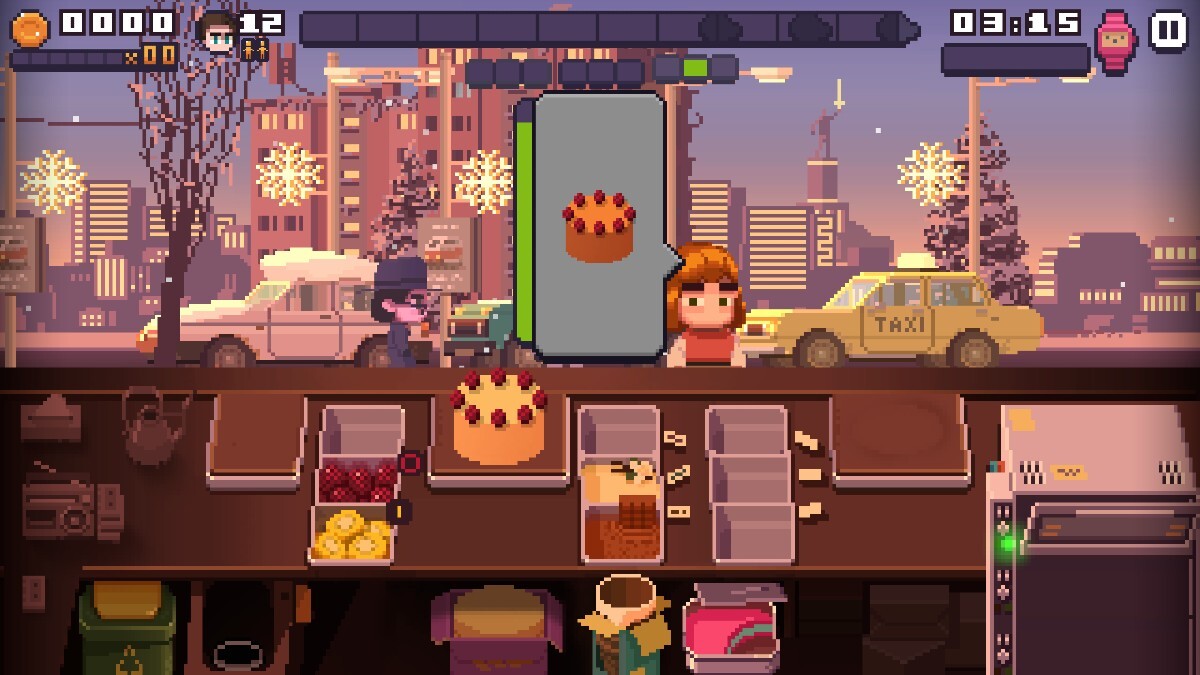
The food preparation and delivery mechanisms are incredibly simple and intuitive. Once you’re playing, you get into a groove; it’s almost trancelike. However, that in no way means that it’s relaxing. The closest thing to compare it to is the rush of being seven years old, semi-unsupervised inside of a Chuck E. Cheese and manically playing Whack-A-Mole.
If you are looking for a game to play to relax after a long day, this is not the game for you, particularly not for someone looking to chill after a shift in the service industry, as this game pretty nearly captures the feeling of being understaffed while in the weeds. But at least in Pixel Café, you don’t need to worry about any of the customers yelling at you. This game is best enjoyed while highly caffeinated.
Visually, this game is very cute. It’s got quirky, expressive character design, and the 16-bit style perfectly fits the nostalgic vibe of the game. Karstok’s colorful 1980s Soviet-inspired design works well with the artist colony vibes mixed in by the game’s designers. Each location has its own level selector, which takes the form of a cute calendar and allows players to replay their favorite levels or even cutscenes at their discretion.
Pixel even gets weekends off. This sends players to her house, which they can customize using money they earn at work. These upgrades are not only aesthetic, but generate happiness points that can be used to upgrade Pixel.
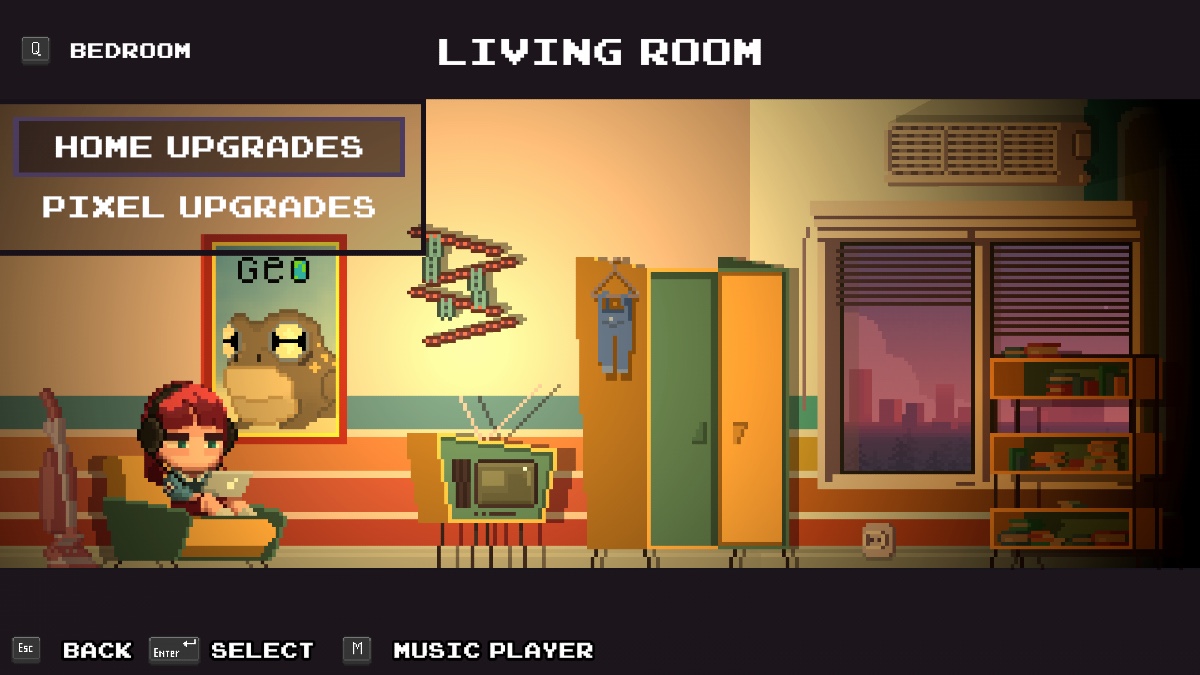
The designs for inside her house are rather limited. But, after all, this isn’t The Sims 4. Kitchen upgrades can also be purchased in between rounds, and upgrades include more counter space, which allows you to complete complicated orders more quickly and send customers on their way.
The game also features a pleasant low-fi soundtrack, which, while repetitive, fits the game well. In fact, the Lo-Fi Beats To Study To girl would fit in perfectly among Pixel’s customers.
And Now, The Bitter Taste Of Disappointment
While this game has many things to like, the script is not one of them. This is something of a personal pet peeve, but the script, to put it lightly, is not good. Unfortunately, it read like it had been run through a translation program and then put right into the game without a single pair of human eyes going over it first.
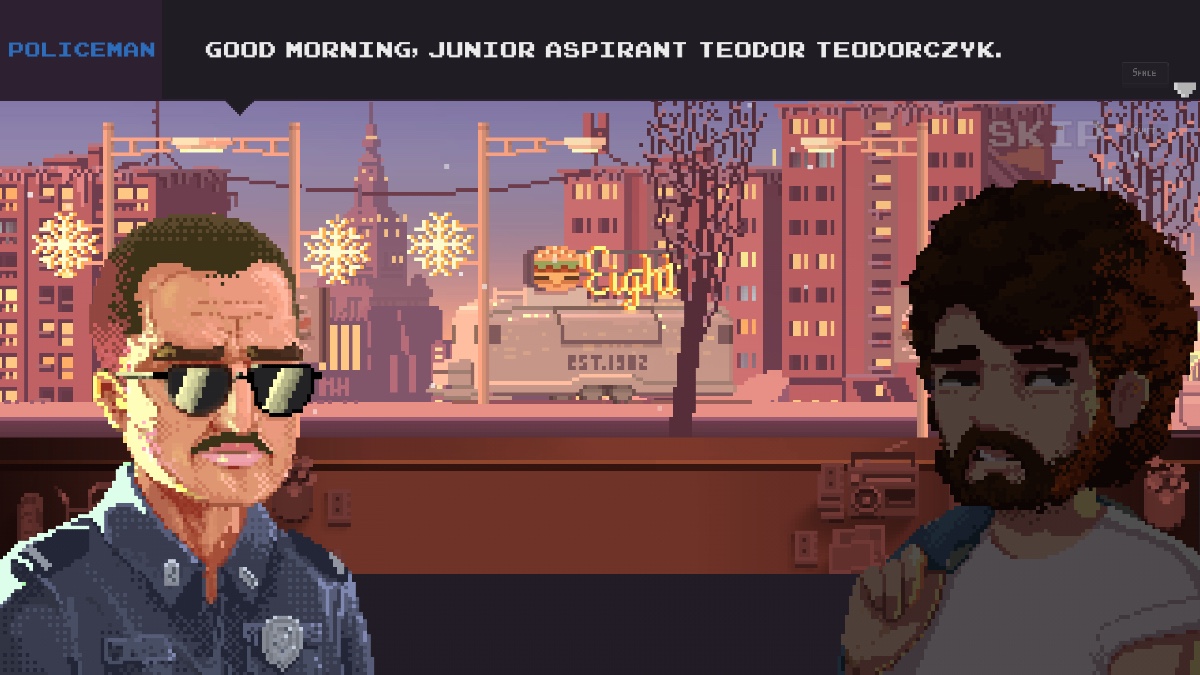
While it is still possible to follow the story, and astonishingly, a couple of the jokes still hit, parts of the dialog are borderline unreadable. Segments with the second boss, Julian, were particularly difficult to get through. The terrible writing also undermined the emotional impact of the more serious scenes.
That being said, this isn’t a game you play for the story, so the script may have been forgivable if the rest of the game ran well. Unfortunately, it does not.
I was having a great time playing the game until I reached the game’s third stage, where Pixel works on a train, and I entirely lost the ability to put a sandwich together. In a drag-and-drop game like this, it is vital to be able to both drag and drop. It’s not a good thing to be faced with a full counter of customers and suddenly be unable to fulfill their orders.
At first, I thought the problem might be me. But, due to the intuitive and simple controls seen in the rest of the game, it became increasingly apparent that I was in fact dealing with a glitch. And not one I could simply work around either. You can only have so many dissatisfied customers, and new customers will not arrive to bulk up your numbers while there’s still a row of hungry commuters wondering where their sandwiches are.
Oddly, these problems didn’t totally wreck my enjoyment of the game. This isn’t really a game you play for the story or to win; it’s something you play for the vibe—the hypnotic ebb and flow of fulfilling orders. However, I am deeply disappointed that I was not able to progress further.
That being said, I can’t, in good faith, recommend getting a game that might not be beatable. Hopefully, developers will resolve this problem in time for Pixel Cafe’s official release on November 30. A pre-release update gave me a ray of hope, but it was false hope. As of writing, this glitch has not been resolved.
Verdict
Pixel Café is very cute, if not revolutionary, and enjoyable when it decides to work. It’s got charm, a hearty dose of nostalgia, and simple hypnotic gameplay that really sucks you in. Its low-fi soundtrack sets the mood perfectly, and I genuinely enjoyed playing the game. However, Pixel Cafe— like Pixel’s bushel of bosses— also has some very apparent flaws. The poorly edited script was a distraction, and it lacks one of the bare minimum requirements of a game: the ability to play it fully. The game derailing on the train level is not something that can just be glossed over.
- Energizing Gameplay
- Cute Nostalgic Visuals
- Game Ending Glitch


